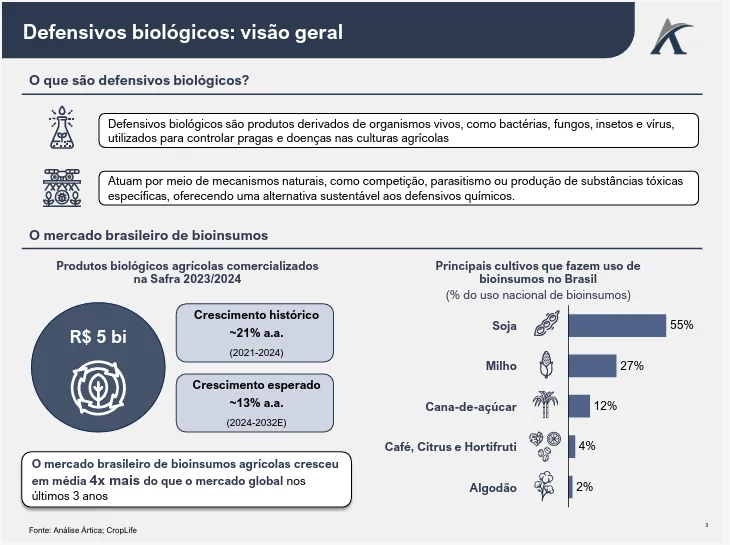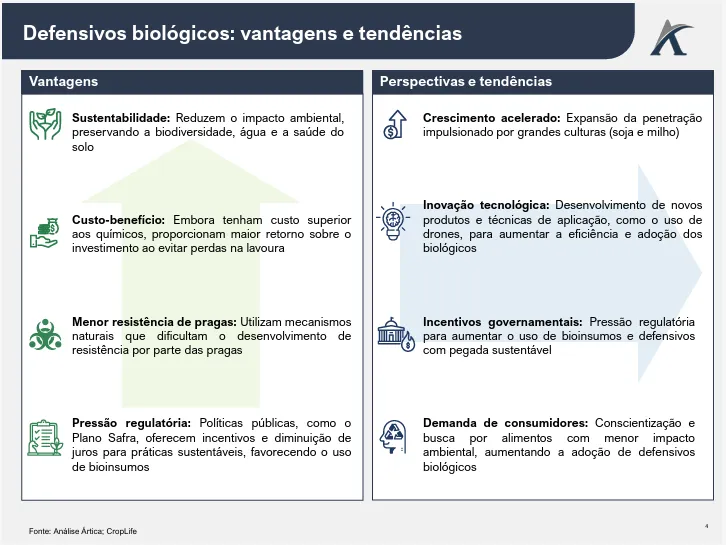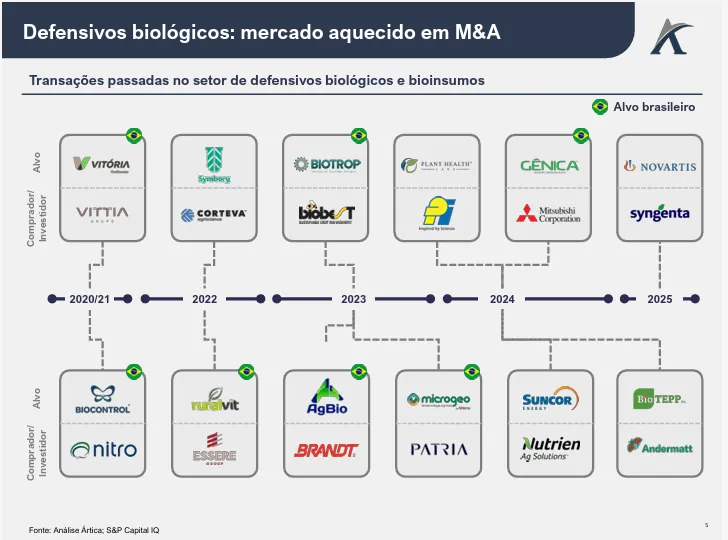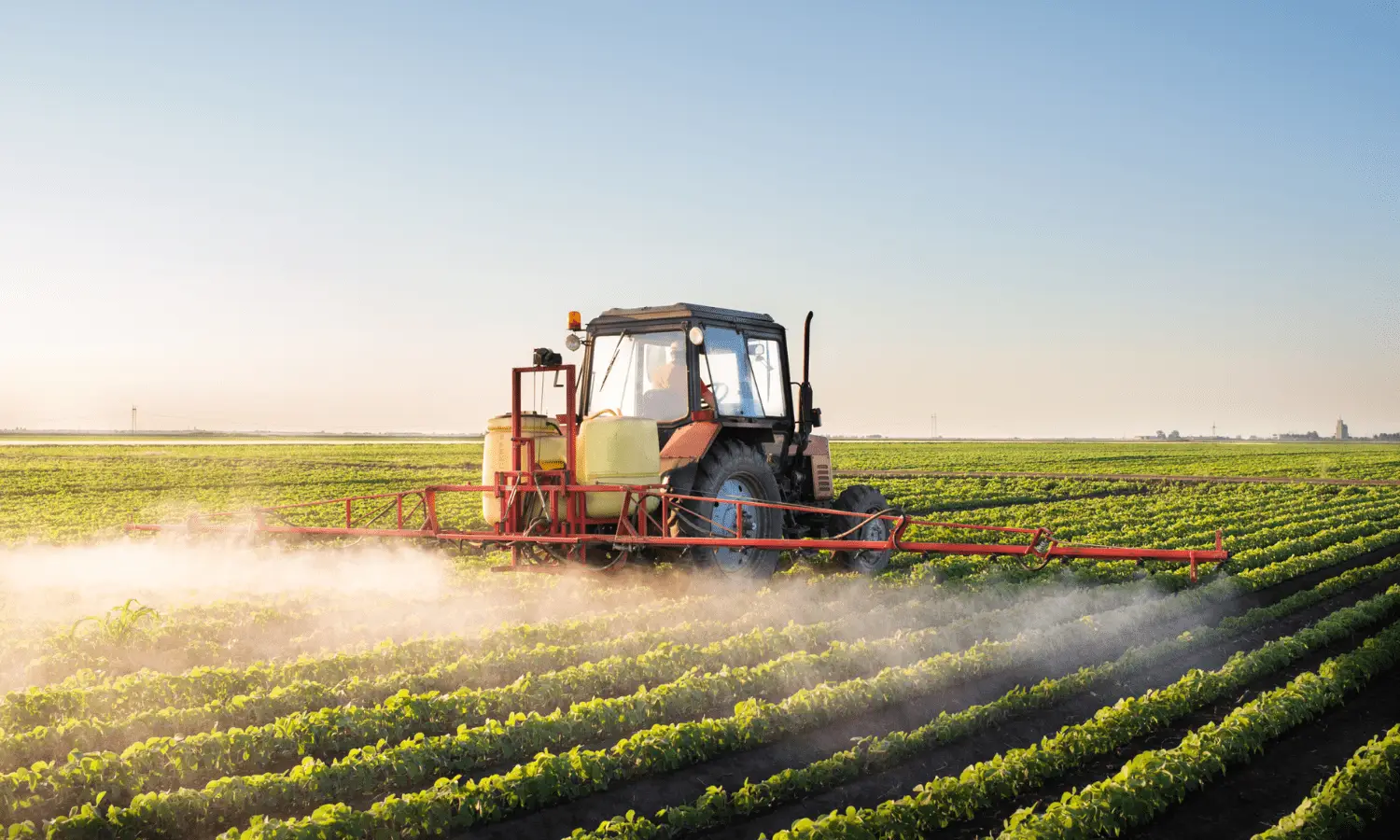Biological pesticides are products derived from living organisms, such as bacteria, fungi, and viruses, used to control pests and diseases in crops. Unlike traditional chemical pesticides, they act through natural mechanisms—such as parasitism and competition—and have been rapidly gaining ground in agriculture.
The Brazilian biological pesticide market generated approximately R$1.5 billion in revenue in the 2023/2024 harvest and has been growing, on average, by R$211.3 billion annually—a pace four times faster than the global market. Currently, soybean cultivation accounts for more than half of all consumption, followed by corn in second place, sugarcane in third, and other crops.
The rise of biologicals is driven by factors such as cost-effectiveness, reduced pest resistance, reduced environmental impact, greater adherence to ESG principles, and an increasingly restrictive regulatory environment for chemicals. Furthermore, technological advances (such as drone application) and government incentives are expanding their adoption.
In today's pill, understand why biological pesticides are gaining prominence in the future of agriculture.








